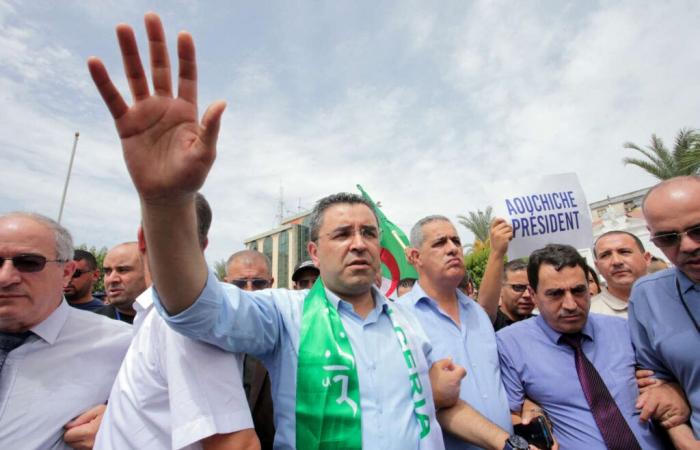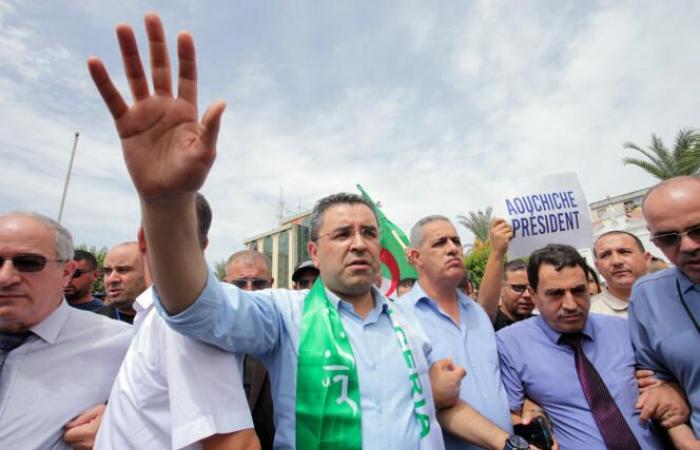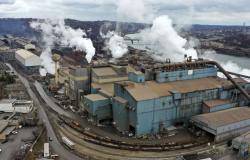On this August 31, the 250-seat conference room of the library of the city of Boumerdès, 45 kilometers east of Algiers, is almost full. A feat for a summer Saturday, when the humidity transforms the 29° displayed by the thermometer into 37° felt in this coastal city bordered by long beaches. Everyone has come to listen to Youcef Aouchiche, the candidate of the Socialist Forces Front (FFS), present his program for the presidential election of September 7 in which he is a candidate, against the outgoing president Abdelmadjid Tebboune.
Once their cameras are fixed on the stage, half a dozen cameramen collapse into their seats, their noses in their phones. Mr. Aouchiche arrives discreetly, without immediately raising applause. In front of a dozen microphones from national media, he unfolds his economic and social program with great energy. Classical Arabic is not his language and he sometimes stops in the middle of a sentence to glance at his text, preferring Darija, the Algerian dialect, or slipping in a few words in Kabyle and French.
Read the decryption | In Algeria, a president and two extras for an election decided in advance
Add to your selections
In the race against the Islamists of the Movement of Society for Peace (MSP) and the socialists of the FFS, two parties with a solid national base, Abdelmadjid Tebboune is, on paper, facing greater opposition than in 2019, when he was elected against Abdelkader Bengrina (17.3%), the president of the Islamist party El Binaa – who has since rallied to the outgoing president. Among observers of the Algerian political scene, many wonder why the FFS, which has always refused to compromise in elections “played in advance”has agreed to participate – and therefore to give a form of guarantee – to a presidential election promised to the head of state.
Resisting the “resignation” of voters
According to Youcef Aouchiche, questioned on the subject as soon as his party’s participation was announced on May 25, this decision is less linked to a democratic improvement than to the risk that a boycott would pose to Algeria. “Today, the Algerian has resigned from political action, he explained. We have moved from distrust to resignation, which is dangerous. Despite the questionable conditions in which it will take place, the next election […] offers an opportunity for the reconquest of democratic political spaces.” In his eyes, the FFS is capable of doing “to emerge a powerful patriotic, progressive and democratic political pole”able to “rehabilitate freedoms of expression and opinion.” Although the campaign was relatively consensual, Mr. Aouchiche regularly called for the release of prisoners of conscience, who do not exist according to President Tebboune.
You have 51.28% of this article left to read. The rest is reserved for subscribers.







